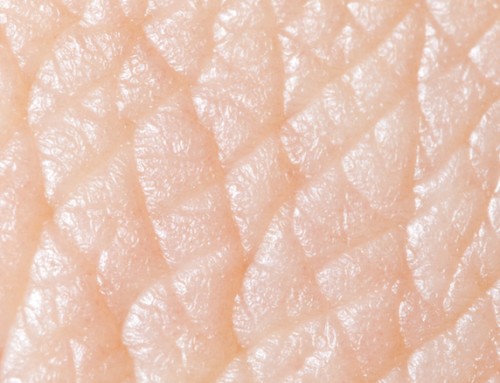Reduce digestive bloating (& other symptoms) during feasting
(4 minute read)
The festive season is synonymous with indulging, and overindulging in special foods and gastronomic delights. Therefore, it’s also often synonymous with bloating discomfort, feelings of nausea or heartburn.
There are approaches that support your enjoyment to prevent or ease distressing digestive disorders, and enable you to fully immerse yourself in the enjoyment of the season.
By recognising the digestive system as the complex and highly evolved system that it is, we can work with it to enhance its optimal function. Remember, it’s not just your physiology that you’re working with. There’s also a world of multicultural microorganisms to consider, known as the microbiota.
“On ounce of prevention is worth a pound of cure.” – Benjamin Franklin
Cleanse the digestive system
Begin your day with the juice of half a lemon or lime in warm water. This has multiple benefits, not least enhancing the acidic environment needed along most of the gastrointestinal tract. Follow the lemon juice with a glass or two of filtered water, to hydrate and prepare your digestive system for the pleasures to come. Swish at least one mouth full of water through your teeth, to reduce any enamel damage from the citric acid.
Get your juices flowing before sitting down to eat.
Smelling mouth-watering aromas triggers the first phase of digestion, the thinking (cephalic) phase. This stimulates secretions in the mouth and stomach, effectively priming the digestive system, just like you prime the lawn mower before you start it up. This priming ensures better digestion capacity throughout the whole gastrointestinal tract, which reduces the risk of burning reflux or bloating from indigestion.
Other ways to open the system.
An aperitif before dinner prepares the body to digest too. Deriving from the Latin aperire meaning to open, aperitifs prepare the digestive system. Swedish Bitters is a traditional medicinal digestive stimulant made from a range of herbs. This is great for elderly people, or anyone with diminishing digestive capacity.
Bitter herbs assist the gut to break down and assimilate the food. Angostura bitters are made from the bitter herb Gentian. With mineral water and a squeeze of fresh lemon, it’s a delicious aperitif. Or have a tart Campari with soda, or vermouth and fermented ginger ale.
When a low concentration of alcohol hits the stomach, it triggers the production of stomach acid. Thus, a small champagne might be just fit the bill.
Social system support
Festive mealtimes are ideally long, drawn out affairs, shared with people you love and get along with well. Eat slowly, savour the flavours and the company. Prioritising the connection with those at your table as the key enjoyable ingredient might be the best support for your entire system, plus it reduces both the quantity and speed at which you eat.
Relaxation and feelings of enjoyment enable the arm of the nervous system coordinating digestive process. Successful digestion requires chewing thoroughly too, so that saliva mixes with food to start the breakdown of carbohydrates. Chewing well breaks down the food particles into smaller sizes, so that further along the gastrointestinal tract, acids and enzymes have more surface area to work on.
Boost digestion further by including fennel, caraway, ginger, dill, anise, chili or watercress where ever you can in dishes. These digestive herbs help minimise gastric complaints.
Watch the fat and simple sugars
Simple sugars are a delight to the taste buds, and it’s hard to stop at one. The addiction factor for sugar is a strong one to contend with, particularly after a few alcoholic beverages! Sugars not only provide the body with quick energy supply (generally stored as fat), they also impact the population balance of the microbiota and place additional burden on the liver. Being mindful of consumption is the best approach!
Avoid going overboard with large quantities of heavy fats, such as creams, cheeses and fatty meats too. These generally taste amazing, therefore mindful, slow, luxuriating, small mouthfuls are the way to go.
The bitter herbs can support fats digestion. You can further yours with a herbal cholagogue, such as a cup of dandelion root tea. Eating a slice of fresh pineapple or pawpaw/papaya with or after your meal can enhance your digestive enzymes too.
After the party…
People troubled with heartburn could try a tablespoon of apple cider vinegar (ACV) in water before or after eating. Fire tonic (ACV with herbs infused in it) can be magical for stopping heart burn.
Calming, after dinner, digestive infusions include ginger and cinnamon, peppermint and lemon balm, fennel and chamomile. Leave the herbs to infuse for 5-7 minutes before sipping your tea.
These are all good preludes to the traditional afternoon nap.
Your postprandial nap is ideal to allow the parasympathetic nervous system to dominate, which orchestrates digestion. When you do recline, make sure you give your abdomen the space it needs to continue its work.
Soon you’ll be ready to start feasting all over again!
Enjoy!!
This is one element of Sparkle Well Nourish – a 3-month, step-by-step, effective and safe, health weight management process designed by Naturopath Sally Mathrick. Join us at Sparkle Well School for the best way to lose weight (build health).
Copyright Sally Mathrick 2018. Please cite www.sparklewell.com.au if using this information





